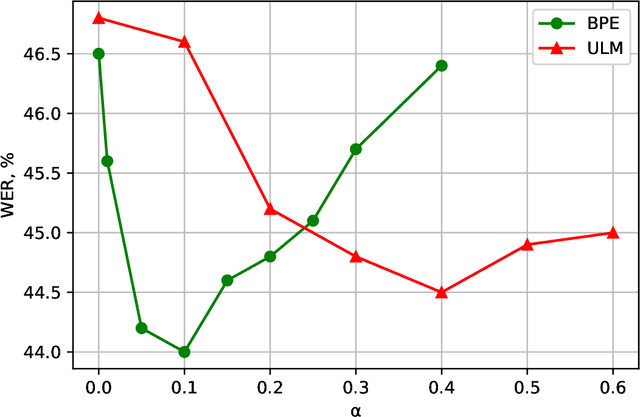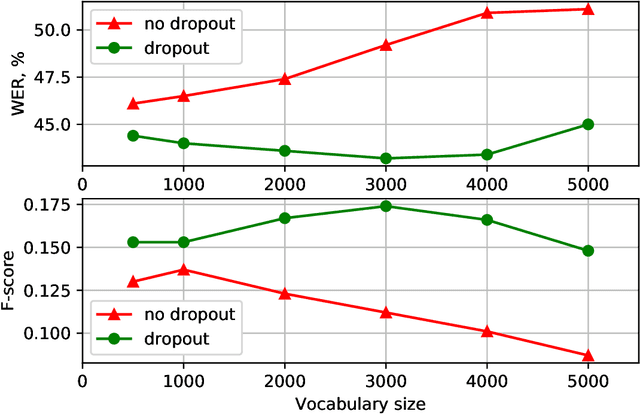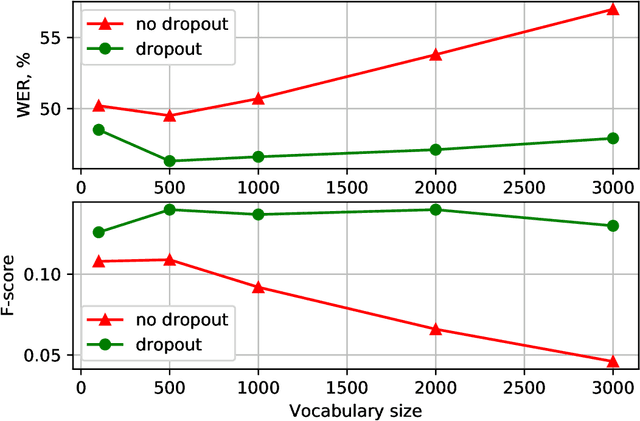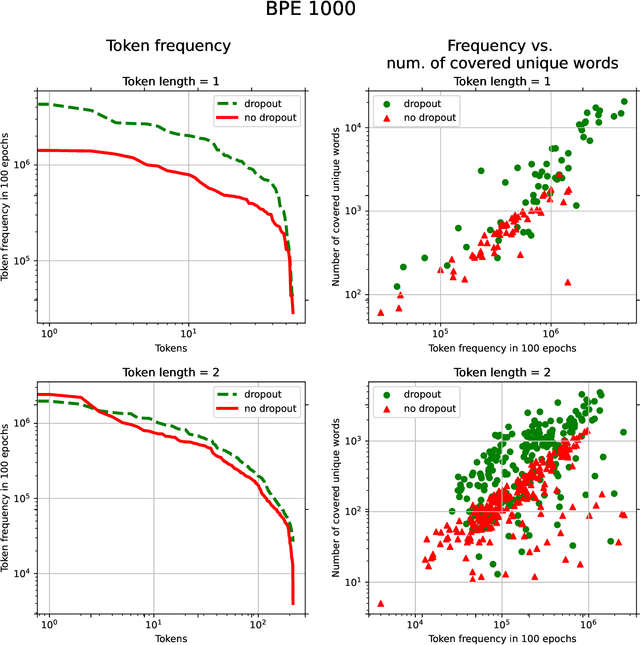Yuri Matveev
Dynamic Acoustic Unit Augmentation With BPE-Dropout for Low-Resource End-to-End Speech Recognition
Mar 12, 2021



Abstract:With the rapid development of speech assistants, adapting server-intended automatic speech recognition (ASR) solutions to a direct device has become crucial. Researchers and industry prefer to use end-to-end ASR systems for on-device speech recognition tasks. This is because end-to-end systems can be made resource-efficient while maintaining a higher quality compared to hybrid systems. However, building end-to-end models requires a significant amount of speech data. Another challenging task associated with speech assistants is personalization, which mainly lies in handling out-of-vocabulary (OOV) words. In this work, we consider building an effective end-to-end ASR system in low-resource setups with a high OOV rate, embodied in Babel Turkish and Babel Georgian tasks. To address the aforementioned problems, we propose a method of dynamic acoustic unit augmentation based on the BPE-dropout technique. It non-deterministically tokenizes utterances to extend the token's contexts and to regularize their distribution for the model's recognition of unseen words. It also reduces the need for optimal subword vocabulary size search. The technique provides a steady improvement in regular and personalized (OOV-oriented) speech recognition tasks (at least 6% relative WER and 25% relative F-score) at no additional computational cost. Owing to the use of BPE-dropout, our monolingual Turkish Conformer established a competitive result with 22.2% character error rate (CER) and 38.9% word error rate (WER), which is close to the best published multilingual system.
Deep Speaker Embeddings for Far-Field Speaker Recognition on Short Utterances
Feb 14, 2020



Abstract:Speaker recognition systems based on deep speaker embeddings have achieved significant performance in controlled conditions according to the results obtained for early NIST SRE (Speaker Recognition Evaluation) datasets. From the practical point of view, taking into account the increased interest in virtual assistants (such as Amazon Alexa, Google Home, AppleSiri, etc.), speaker verification on short utterances in uncontrolled noisy environment conditions is one of the most challenging and highly demanded tasks. This paper presents approaches aimed to achieve two goals: a) improve the quality of far-field speaker verification systems in the presence of environmental noise, reverberation and b) reduce the system qualitydegradation for short utterances. For these purposes, we considered deep neural network architectures based on TDNN (TimeDelay Neural Network) and ResNet (Residual Neural Network) blocks. We experimented with state-of-the-art embedding extractors and their training procedures. Obtained results confirm that ResNet architectures outperform the standard x-vector approach in terms of speaker verification quality for both long-duration and short-duration utterances. We also investigate the impact of speech activity detector, different scoring models, adaptation and score normalization techniques. The experimental results are presented for publicly available data and verification protocols for the VoxCeleb1, VoxCeleb2, and VOiCES datasets.
 Add to Chrome
Add to Chrome Add to Firefox
Add to Firefox Add to Edge
Add to Edge